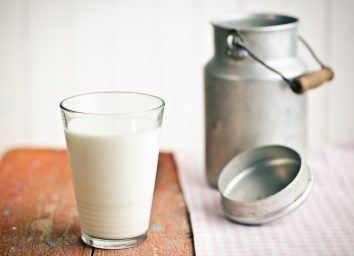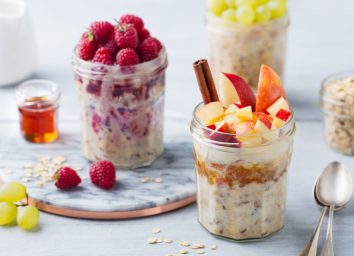The #1 Best Food to Reduce Inflammation and Slow Aging, Experts Say
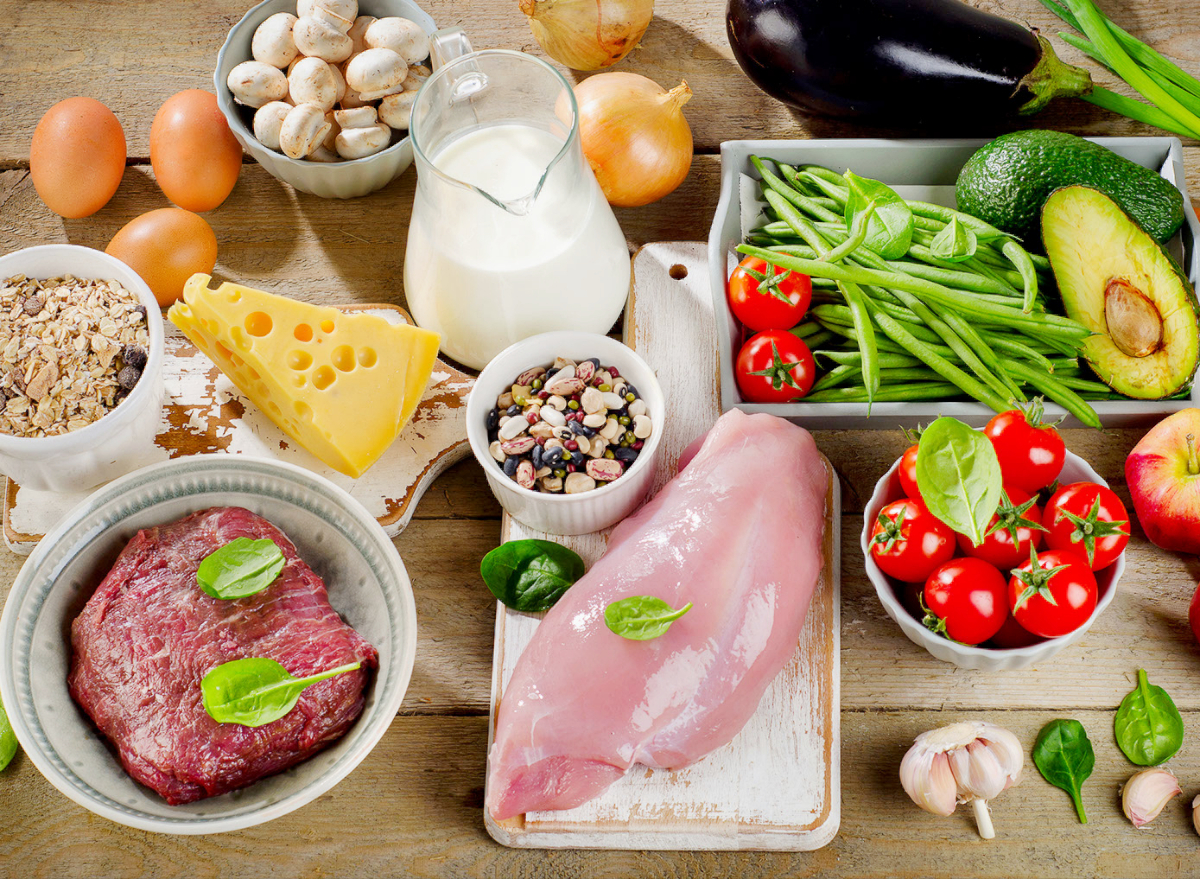
You might already be aware that a wide range of health problems—like arthritis and joint pain, cancer, Alzheimer’s, diabetes, heart disease, and even acne—are linked with inflammation. To fight the condition, a team of scientists who specialize in aging say there’s one particular ingredient that could be key to your diet, while it also works within the gut to promote healthy organ function for the longterm.
When you think of tryptophan, you probably know it as the chemical that makes you tired after you eat Thanksgiving turkey. While conventional wisdom might suggest that’s the case, tryptophan has other powerful effects on your body that are perhaps a little more desirable.
That’s according to Sadanand Fulzele, PhD, and Carlos Isales, MD (via SciTechDaily), researchers at the Medical College of Georgia at Augusta University. From their recent study with mice, the pair has discovered that a diet low in tryptophan may cause lower-than-necessary levels of gut bacteria that support immunity and lead to the production of chemicals that benefit the body. These include seratonin, which helps promote feelings of happiness, and melatonin, a hormone that supports sleep.
Isales added that the researchers believe tryptophan also “produces metabolites that affect every organ function.” It’s worth mentioning that a recent report suggested decreased organ function is a significant part of what causes declining health as we age. (See This Is The Exact Age Your Metabolism Starts Slowing, Says New Study.) With that in mind, the results of the current study may indicate that healthy tryptophan levels are beneficial to overall longevity.
Another discovery the researchers made was that lower levels of tryptophan in the mice’s guts also correlated with an increase in types of bacteria that are associated with gut and overall body inflammation.
However, the two doctors say, this is not their recommendation to instantly turn up your turkey intake. “[..E]ven if you eat more tryptophan,” Isales said, “you may not use it correctly.” So, the team’s research continues as they aim to identify a mix of acids and chemicals from foods that would truly be optimal for the body.
In the meantime, if you’re simply curious which common foods do contain tryptophan, here are a few:
Milk
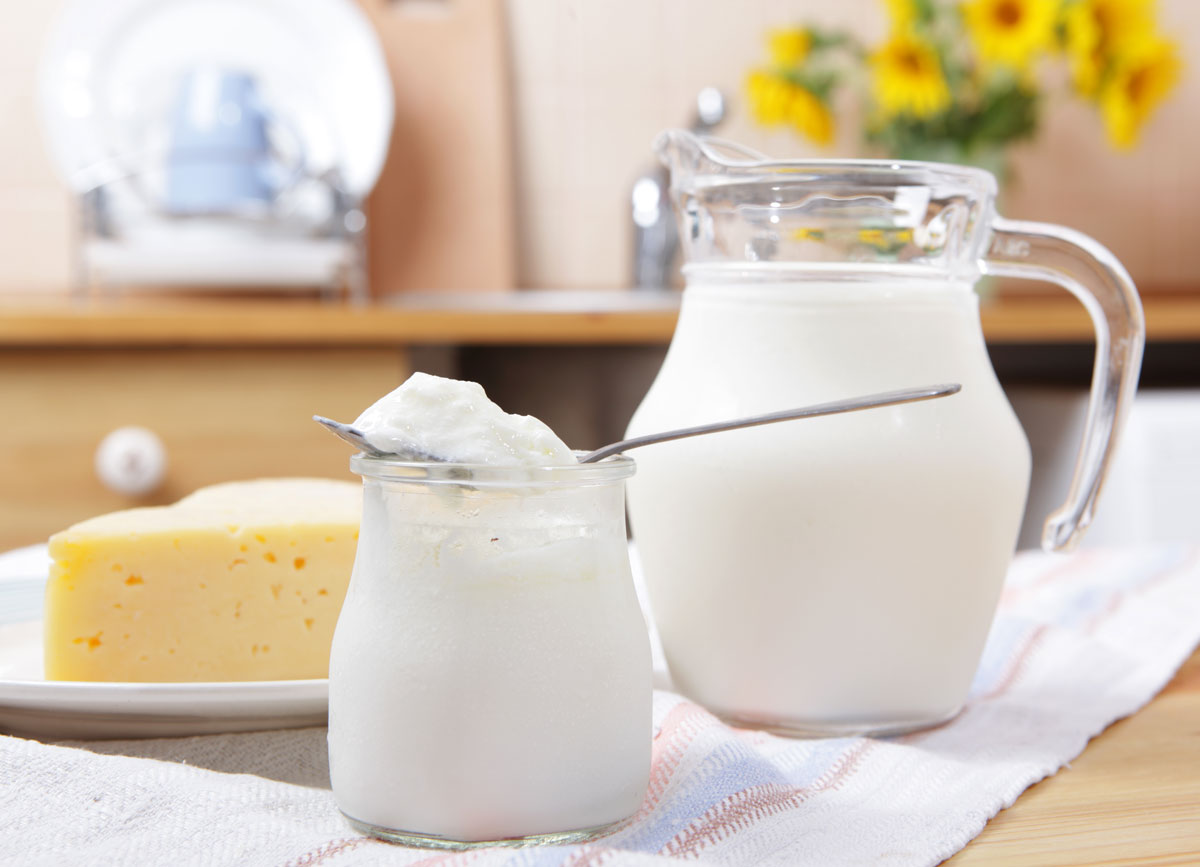
WebMD reports that whole cow’s milk is a source of high tryptophan levels. Alternative sources suggest that other dairy products, like low-sugar yogurt, deliver tryptophan as well. (Not so into dairy these days? Find out how to get some of its advantages elsewhere in Popular Foods With More Calcium Than a Glass of Milk.)
Chicken and Leafy Greens
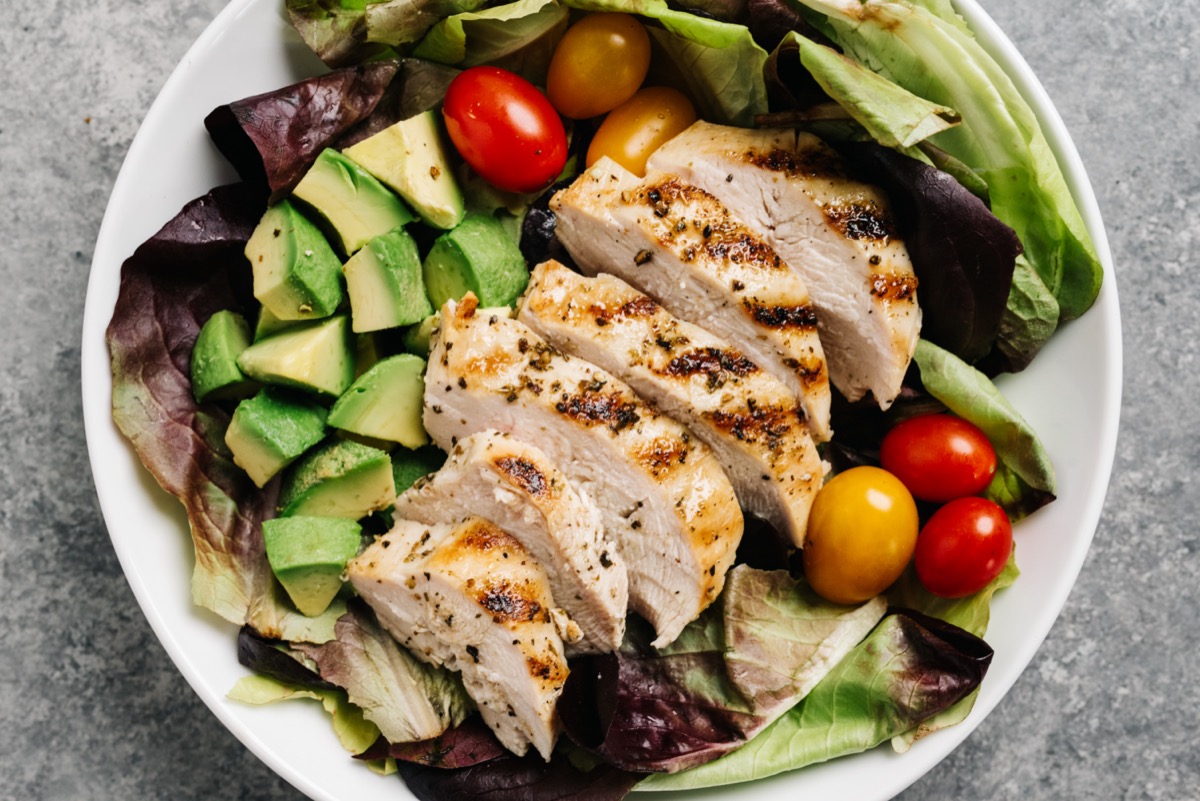
Chicken and leafy greens, like watercress, are two foods high in tryptophan, according to the Physicians Committee for Responsible Medicine. (WebMD suggests dark-meat chicken has slightly more tryptophan than light-meat, but the opposite is true for turkey.)
Eggs
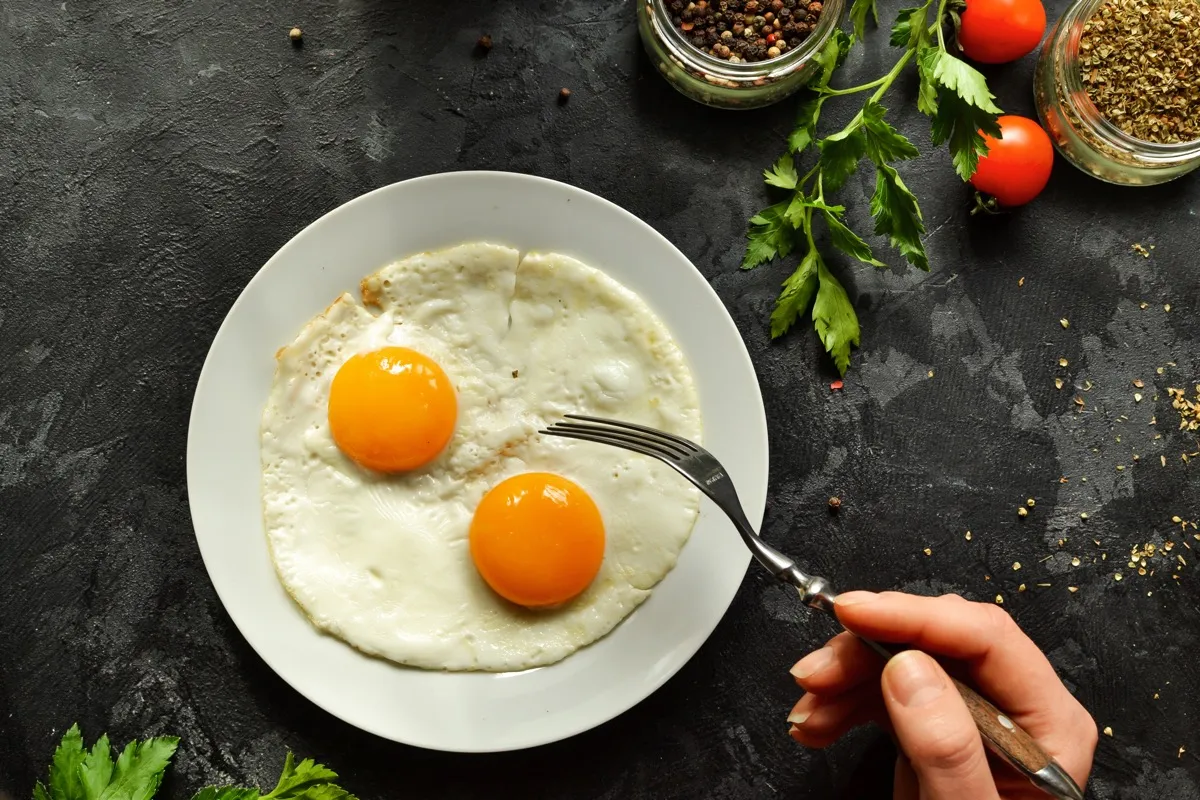
Healthline says eggs can help boost the body’s tryptophan levels, but you need the yolks for the best boost.
(Certain eggs also support your immunity by delivering big on Vitamin D—read up on One Major Effect of Eating Free-Range Eggs, Says Science.)
Seeds and Nuts
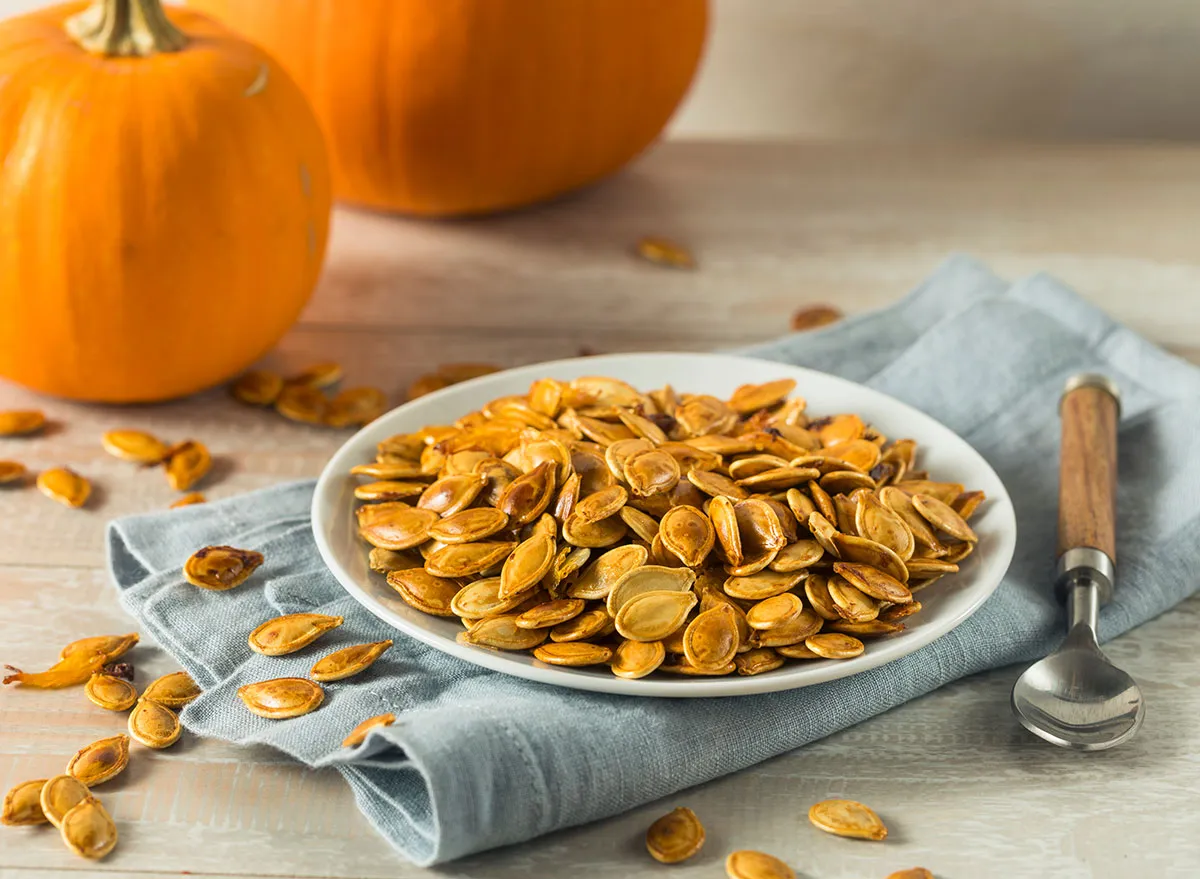
In particular, pumpkin seeds, sunflower seeds, and peanuts are more plant-based sources of tryptophan.
Oats
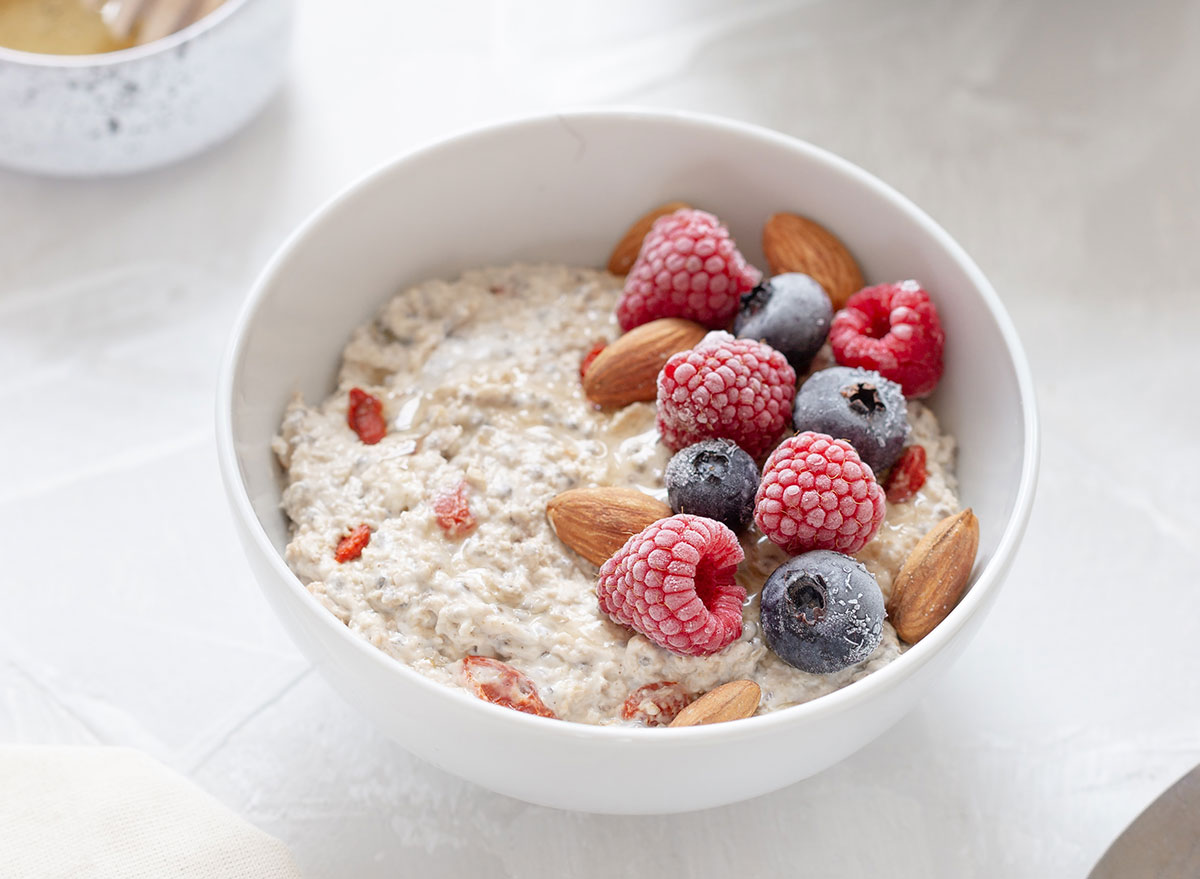
One cup of cooked oatmeal is said to deliver approximately 150 milligrams of tryptophan. That’s about one-fifth of what you get from milk and around one-third of what turkey provides… but nice to know that the morning oats you love yield such big benefits. (Find even more of them in Secret Effects of Eating Oatmeal, Says Science.)
Get the Eat This, Not That! newsletter for daily health news, and keep reading:

